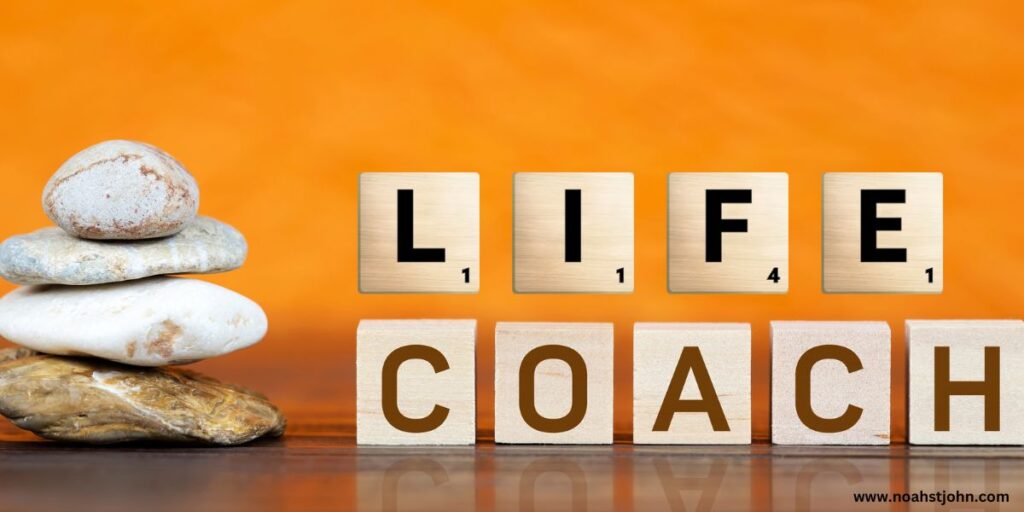
Life coaching has evolved into a powerful and transformative practice, guiding individuals toward their full potential. Coined as a term in the 1980s, life coaching has since burgeoned, offering support, guidance, and motivation to countless individuals seeking personal and professional development.
Life coaching involves a collaborative partnership between a coach and a client, aiming to facilitate goal-setting, personal growth, and enhanced performance in various facets of life. Unlike therapy, which delves into past traumas or psychological issues, life coaching primarily focuses on the present and future, enabling individuals to create actionable plans to achieve their aspirations.
Originally rooted in sports coaching, the concept of life coaching transitioned to encompass broader life domains, embracing areas such as career, relationships, health, and spirituality. This transformation reflects society's increasing desire for holistic development and fulfillment.
Related articles:
Life Coach For Teens: Guiding Your Teen Through Life
Life Coach Online: Elevate Your Life Journey!
A proficient life coach is a guide, motivator, and accountability partner, fostering self-awareness and empowering clients to unlock their potential. They assist in clarifying goals, overcoming obstacles, and maintaining focus on the client's objectives.
An effective life coach embodies empathy, active listening, and the ability to ask thought-provoking questions. They exhibit strong communication skills and possess a toolkit of strategies tailored to individual client needs.
Life coaching cultivates self-discovery and personal growth by challenging limiting beliefs and fostering a growth mindset. Clients experience heightened self-confidence and resilience to navigate life's complexities.
Life coaching aids in setting realistic and achievable goals, breaking them down into manageable steps. Clients witness tangible progress and celebrate accomplishments, fostering a sense of fulfillment.
Life coaches use positive psychology principles to emphasize strengths, positivity, and gratitude, enhancing mental and emotional well-being. Techniques include visualization, affirmations, and strengths-based assessments.
Incorporating cognitive behavioral techniques enables clients to recognize and reframe negative thought patterns, fostering a more positive and productive mindset. This approach helps in managing stress, and anxiety, and achieving behavioral change.
Factors like specialization, experience, coaching style, and testimonials are crucial when selecting a life coach. Compatibility and rapport play a pivotal role in establishing a fruitful coaching relationship.
A harmonious connection between the client and coach ensures effective communication, trust, and alignment of goals, maximizing the coaching process's efficacy.
Dispelling myths surrounding life coaching is essential. It's not about giving advice or therapy; instead, it's a collaborative process that encourages self-discovery and goal attainment.
Life coaching is action-oriented, focusing on the present and future. It doesn't dwell on past experiences but instead harnesses potential for growth and progress.
While both are valuable, therapy delves into mental health issues and unresolved past experiences, while life coaching concentrates on goal-setting, action plans, and achieving desired outcomes.
In some cases, individuals benefit from a combination of therapy and life coaching, each serving distinct yet complementary roles in personal development and well-being.
Sharing real-life success stories highlights the transformative power of life coaching, inspiring individuals by showcasing tangible results and personal achievements.
Witnessing individuals undergo profound positive changes further emphasizes the effectiveness of life coaching in different life domains.
Resistance to change and setbacks are inevitable. Skilled life coaches help clients navigate challenges, fostering resilience and perseverance.
Maintaining ethical standards, confidentiality, and boundaries is imperative in the life coaching profession, ensuring the well-being and trust of clients.
The future of life coaching holds promising advancements in technology, specialized niches, and diverse methodologies to cater to evolving client needs.
With an increasing focus on mental health and personal development, the demand for qualified life coaches continues to rise, validating its significance in modern society.
Life coaching transcends mere guidance; it embodies a transformative journey toward self-discovery, empowerment, and fulfillment. Its evolution continues to shape and enrich the lives of individuals seeking positive change. Looking for your life coach? Avail our limited-time offer here.
What qualifications should a life coach have?
While there's no universal requirement, a good life coach usually possesses certifications from accredited coaching programs, relevant experience, strong communication skills, empathy, and the ability to motivate and guide individuals. They might also have specialized training in specific areas such as career coaching, relationship coaching, or wellness coaching.
How long does life coaching typically last?
The length of life coaching can vary widely based on individual needs and goals. It might last for a few sessions or extend over several months to a year, depending on the complexity of the issues and the progress made.
Can life coaching benefit everyone?
Life coaching can be beneficial for many people. It offers support, guidance, and motivation to individuals looking to achieve specific goals, improve certain aspects of their lives, overcome obstacles, or find direction and purpose.
Is life coaching similar to counseling?
Life coaching and counseling share some similarities as they both involve a supportive relationship aimed at personal growth. However, counseling tends to focus more on mental health issues, past traumas, and emotional healing, while life coaching is more future-oriented, concentrating on setting and achieving goals, enhancing performance, and improving one's life satisfaction.
Are there any age restrictions for seeking life coaching?
Generally, there are no specific age restrictions for seeking life coaching. Anyone, from teenagers to older adults, can benefit from life coaching depending on their needs and willingness to actively engage in the process.

Dr. Noah St. John, The Father of AFFORMATIONS®
Creator of The 12-Week Breakthrough

Copyright © 1997 - 2024 | | by SUCCESS CLINIC INTERNATIONAL, LLC. Noah St. John, PhD Making Success Automatic® Since 1997